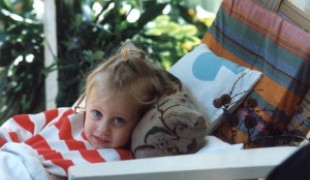- 13314
- 806
- 21
- 17
- 0
- Help Ukraine
About the solution
To remove, simply strike the rear part of the sole on any hard surface and the momentum of your foot pops them open allowing your foot to come right out.
Each pair of Quikiks™ comes with a set of medium-strength securing magnets. Weaker and stronger magnets are also available upon request and are easily swapped out, so that the holding strength can be customized to your abilities. A spring in the hinge keeps the shoes in the open position so they are ready to receive your foot the next time you want to put them on.
There are no batteries or electronics contained in Quikiks™. The Step-in-Go™ System is a simple, robust mechanism that we hope will improve the quality-of-life for its users for years to come.
Steve was clueless about shoe making. “I didn’t know anything about shoe making. I just had a vision of how it might be possible. Stepping into the shoe rotates the “swing arms” securing the shoe over the bridge of the user’s foot…But this version had many issues, so a new method was contemplated. After fabricating and testing many, many more prototypes, and getting a lot of help from committed professionals who, along with me, truly believe these shoes can improve the quality-of-life of so many people, they were finally ready”.
According to the inventor, these shoes can help a lot of people with different disabilities. “Chronic back-pain sufferers, post-stroke victims, those afflicted with Cerebral Palsy and autism, people struggling with obesity and severe arthritis, hand and arm amputees and even the temporarily needy—say people who have had an accident or those in rehab from hip-replacement surgery”.
In the seven years since he started working on these shoes Steve has garnered as many awards, including one for innovation at the 2015 International Consumer Electronics Show, in Las Vegas. Alex sometimes helps his dad at conferences, where response has been phenomenal. “I’ve met so many people along the way–like the woman with vertigo who told me she almost faints every time she bends over to put her shoes on, or the mother of a boy with autism, who broke down crying in my trade-show booth telling me that they fight every morning because her son wants to put his shoes on by himself and gets frustrated when he can’t.”
Beyond making life easier for people via his products, Steve is helping through his business model. As a board member for an agency called Services for the Developmentally Challenged (SDC), in Riverdale, NY, Steve has seen firsthand how difficult it can be to find employment opportunities for people with disabilities. “My goal is to build a Quikiks distribution center in New York City that will provide long-term sustainable employment for people with disabilities.”
More info: http://www.quikiks.com/
Adapted from: http://bit.ly/1Mfcs8C
https://www.youtube.com/watch?t=29&v=K1Gst1cVN8I
这些解决方案不应包括使用药物,化学品或生物制品(包括食品);创伤性设备;冒犯性的,商业或内在危险的内容。该解决方案未经医学验证。请谨慎进行!如果您有任何疑问,请咨询健康专家。
DISCLAIMER: This story was written by someone who is not the author of the solution, therefore please be advised that, although it was written with the utmost respect for the innovation and the innovator, there can be some incorrect statements. If you find any errors please contact the patient Innovation team via info@patient-innovation.com
-
-
389
-
0
-
4087

Hip & co- a mum's invention for hip dysplasia
CAREGIVING
BODY BALANCE: Maintaining body balance
STANDING UP: Standing up from a seated position
WALKING WITH A WALKING AID: Walking with a walking aid
WALKING: Walking
Hip Dysplasia
Assistive Daily Life Device (to help ADL)
Walking Aid (wheelchair/walker/crutches)
Difficulty walking or moving
Muscle weakness
Limited range of motion
Muscle pain or stiffness
Loss of muscle coordination
Muscle cramps or spasms
Joint deformity
Joint redness or warmth
Swelling or inflammation
Difficulty bearing weight
Numbness or tingling in the extremities
Frequent falls
Joint pain or swelling
Restoring mobility
Managing pain
Promoting self-management
Preserving Organ Function
Recovering from Traumatic Injuries
Maintaining Balance and Mobility
Raise awareness
Caregiving Support
General and Family Medicine
Orthopedics
Pediatrics
Australia
-
-
-
552
-
0
-
9198

Mother invents device to help her daughter regain walking ability
WALKING: Walking
STANDING UP: Standing up from a seated position
BODY BALANCE: Maintaining body balance
Stroke
Hemiplegia
Body-Worn solutions (Clothing, accessories, shoes, sensors...)
Assistive Daily Life Device (to help ADL)
Impaired movement
Difficulties learning how to walk
Restoring mobility
Promoting self-management
Rehabilitating After Stroke
Maintaining Balance and Mobility
Cardiology
Orthopedics
Pediatrics
Physical Medicine and Rehabilitation
Germany
-
-
-
448
-
0
-
6986

Mother creates crib easy to carry around
CAREGIVING
Traveling
Chronic Back Pain
Body-Worn solutions (Clothing, accessories, shoes, sensors...)
Assistive Daily Life Device (to help ADL)
Managing pain
Promoting self-management
Preserving Organ Function
Preventing (Vaccination, Protection, Falls, Research/Mapping)
Support on Puerperium/Post-childbirth
Caregiving Support
General and Family Medicine
Orthopedics
Pediatrics
Physical Medicine and Rehabilitation
Rheumatology
United Kingdom
-
 zh
zh